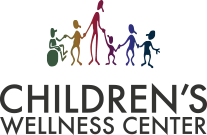When your child has a medical emergency, the best place to seek care is the emergency room, but most illnesses and injuries can be handled in your pediatrician’s office. Many parents have questions about which situations require a trip to the ER and which can wait for an appointment in the office. No one wants to go through the potential long waits, exposure to other contagious illnesses, and cost of an ER visit unless it’s truly necessary. Here’s some guidance.
First and foremost, if you are worried your child’s life is in danger, call 911. This includes:
- Your child stops breathing
- Your child is unconscious, and you cannot wake them
- Your child is having severe difficulty breathing or is turning blue/purple with difficulty breathing
- A seizure that lasts 5 minutes or longer without stopping on its own
- A severe allergic reaction with symptoms like difficulty breathing, trouble swallowing, or swelling of the mouth/tongue
- Trust your instinct. This list is not comprehensive. If you think your child’s life is in danger, call 911.
In all other cases, if you are not sure what to do, call your pediatrician. That’s what we’re here for! At Children’s Wellness Center, there is a physician or nurse practitioner available 24/7 to help you determine what is best for your child. After hours, simply call the office number, and you will be connected to our answering service and receive a call back within minutes.
It is always our preference to see your child in the office, and we can handle the vast majority of issues that may arise. Some examples of illness and injuries that are best evaluated in our office include:
- Fevers in children over 2 months old. Except in young infants, fevers themselves are not emergencies but signs that your child’s immune system is active. If they are breathing comfortably and taking fluids well, we can check them in the office to help determine why they have the fever.
- Minor burns, wounds, and injuries
- Ear pain
- Sore throat
- Rashes and mild skin infections
- Coughs and cold symptoms without labored breathing
- Urinary symptoms and possible urinary tract infections
- Allergies
- Nausea, vomiting, and diarrhea with no or mild dehydration
- Allergies
- Foreign objects in ears and noses
There are cases that are best handled in the emergency room. In addition to the life threatening situations listed above, here are other conditions that require a higher level of care than a doctor’s office can provide:
- Fever of 100.4 F or higher in an infant younger than 2 months old
- Fever with neck stiffness and headache
- Large wounds that won’t stop bleeding
- Seizure in a child with no prior history of seizures
- Severe burns
- Swallowed objects with difficulty breathing or swallowing
- Difficulty breathing
- Vomiting or diarrhea with signs of dehydration like dry mouth, no tears when crying, significant decrease in urination
- Broken bones
- Poisonings. If you’re not sure, call Poison Control at 1-800-222-1222 for advice.
- Head injury with loss of consciousness
Of course, no list can be comprehensive. When in doubt, 911 for life threatening situations, and in all other cases, give us a call if you’re not sure what to do.




Most Commented